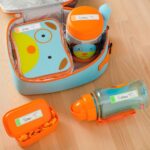Supplements for Children: What Every Parent Should Know

Every parent wants their child to grow healthy, strong, and full of energy. While a balanced diet is the foundation of good health, many children in Africa face nutritional gaps due to poor diets, limited access to nutritious food, and rising cases of picky eating. In such cases, supplements can play an important role in supporting growth, development, and immunity.
But not all supplements are necessary—or safe—for kids. This article explains which supplements children may need, their benefits, and safe usage tips for parents.
Why Children May Need Supplements
-
Nutritional Deficiencies – Lack of vitamins and minerals in local diets can affect growth.
-
Growth Spurts – Children require higher nutrients during rapid growth phases.
-
Frequent Illnesses – Poor immunity leads to recurrent infections that supplements can help manage.
-
Special Diets – Kids who are vegetarian, lactose-intolerant, or allergic to certain foods may need extra nutrients.
Essential Supplements for Children
1. Vitamin D
-
Supports bone growth and immune function.
-
Crucial in Africa, where rickets is still common.
-
Best source: sunlight plus supplementation if necessary.
2. Iron
-
Prevents anemia and supports cognitive development.
-
Important for children with low-meat diets.
3. Calcium
-
Strengthens bones and teeth.
-
Essential during early years of bone formation.
4. Omega-3 Fatty Acids
-
Supports brain and eye development.
-
Helps with focus, memory, and learning.
5. Vitamin A
-
Boosts immunity and vision.
-
Widely given in public health programs across Africa.
6. Probiotics
-
Improve gut health and digestion.
-
Reduce risk of diarrhea, a major child health issue.
Risks of Giving Supplements Without Guidance
-
Over-supplementation can cause toxicity (e.g., too much vitamin A or iron).
-
Fake or low-quality supplements are common in some African markets.
-
Unnecessary use may mask underlying health issues like malnutrition.
Safe Supplement Practices for Parents
-
Consult a doctor before starting any supplement.
-
Choose age-appropriate products designed specifically for children.
-
Check labels for safety certifications and dosage instructions.
-
Use supplements as support, not replacement for a healthy diet.
-
Encourage natural sources – fruits, vegetables, eggs, milk, and fish.
Food First, Supplements Second
While supplements are useful, they should never replace whole foods. A diet rich in fruits, vegetables, grains, protein, and dairy ensures children get natural nutrients. Supplements should only fill the gaps where food cannot provide enough.
Conclusion
Supplements for children can be life-changing when used correctly. In Africa, where malnutrition and dietary gaps remain common, vitamins like D, A, calcium, and iron are especially important. However, not every child needs supplementation.
Parents must strike a balance: prioritize a nutritious diet, use supplements wisely, and always seek medical advice. When done right, supplements can help children achieve stronger immunity, better growth, and brighter futures.
Written by Fawzi Rufai, Medically Reviewed by Sesan Kareem



